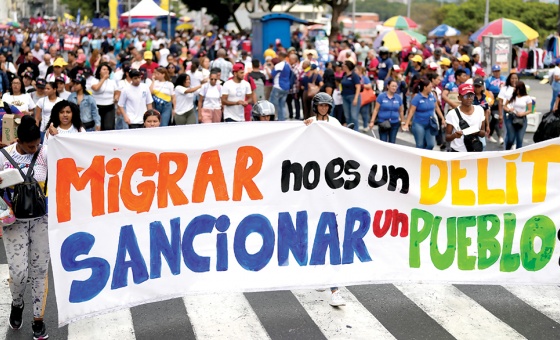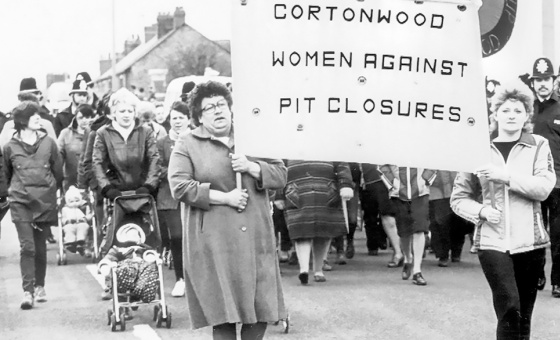This is the last article you can read this month
You can read 5 more article this month
You can read 5 more articles this month
Sorry your limit is up for this month
Please help support the Morning Star by subscribing here
This weekend the canal wharfs of the Northampton village of Braunston will come alive with a huge and colourful gathering of traditional canal narrow boats.
It will celebrate the 70th anniversary of the nationalisation of Britain’s docks, ports, canals and inland waterways by the Labour government in 1947.
Sadly it is also the fifth anniversary of one of the most devious examples of de-nationalisation by Cameron’s Tory government — one that changed British Waterways into the begging bowl wielded now by the Canal and River Trust charity in 2012.
Experienced and skilled canal workers have been thrown on the redundancy scrapheap and replaced by well meaning but unpaid volunteers.
Perhaps the forthcoming Corbyn-led Labour government might think about including waterways in the list of industries and public utilities it is planning to renationalise.
Braunston is now a canal holiday village. Did you know there are more boats on British canals today than ever before in their entire history? Canals too are playing a part in plugging our affordable housing shortage.
Braunston is immensely proud of its part in working class and trade union history. In the summer of 1923 the entire traffic on the canal came to a total halt when its community of boat families went out on strike.
The Transport and General Workers’ Union (TGWU) had only been formed the previous year and the canal boat strike was to be a key struggle bringing union organisation to an industry with none.
The strike would last 14 weeks — between 50 and 60 boats blocked the wharf and both the Oxford and Grand Junction canals.
By far the biggest canal celebration this year will be of the 75th anniversary of the wartime boatwomen who volunteered to work the freight-carrying narrow boats of England’s narrow canal system.
While there were plenty of serviceable boats, there weren’t enough good crews as most boatmen had marched away to war to serve in much bigger navy craft.
The women’s training scheme taught young women the basics of boating and helped to keep the canals carrying frieght during the war. ??In 1939 with most boatmen drafted the running of the boats was left to women and a few older men.
Then many women left to work in the factories and on other important war projects — the boats were tied up and disused.
A very few women like Daphne March had been running her own boat on the Sharpness Canal in Gloucestershire. She realised that women like her could help the war effort.
She took her idea to the War Ministry and the Volunteer Boat Women’s Scheme was the result. March asked another female boater, Kit Gayford, to help her with the scheme and to train the young women volunteers.
They in turn trained other groups. There were no contracts, no uniform and the conditions and pay varied. ??Most women were paid £2 a week for the first six weeks and then £3 a week. Three women worked a pair of boats — a motor boat with a huge hard to start semi-diesel engine towing an unpowered butty boat. The one hot meal of the day was cooked on the move — vegetables from the fields and perhaps a rabbit or pheasant could sometimes add to what meagre ration books allowed.
In time these often middle-class women came to live as the boat people and to identify with them and their appalling working conditions. Some, like Sonia Rolt, would become enthusiastic Labour Party members and trade union recruiters. Few official records existed but a number of the women kept diaries and journals and some wrote useful books covering their wartime boating.
Many of their books are still in print — Maiden’s Trip by Emma Smith; Idle Women by Susan Woolfitt; The Amateur Boatwomen by Eily Gayford, the daughter of the Kit Gayford, or Troubled Waters by Margaret Cornish.
Braunston Marina owner and Rally organiser Tim Coghlan is the leading expert on the volunteer boat women and has collected and published much material on them.
Unlike the Women’s Land Army, the canal boat women received no extra rations, subsisting on what one described as cocoa with condensed milk, national loaf and peanut butter.
Many of these women were barely into their twenties and most had no boating experience. They came from all walks of life: debutantes, bombed out East-enders and even a soon-to-be duchess operated the boats.
Kit Gayford was a former ballet dancer, Sonia Rolt an actress. The Department of War Transport’s only requirement was that young women who applied had to be of robust constitution.
Again unlike the Women’s Land Army the “Idle Women” never received any official recognition for their amazing contribution to the war effort.
One feature of this year’s celebration at Braunston will be a two-woman show of plays, songs and poems based on the memories of these canal boat volunteers.
The two women are former Worcestershire Poet Laureate Heather Wastie and writer and performer Kate Saffin.
One play is Isobel’s War, a solo piece written and performed by Kate Saffin based on the experiences of the wartime trainees. Isobel doesn’t think that rolling bandages and serving tea in the leafy suburbs of Oxford counts as proper war work, then she spots an advertisement and encounters a world she didn’t know existed.
Idle Women and Judies is written and performed by Heather Wastie — it started as a piece based on the audio wartime memories of three women and now includes poems and songs.
Braunston was just one stop on a 15-week canal trip on two narrow boats from London to Birmingham and back to London via the Coventry coal fields — for the plays’ tour the boats are crewed entirely by women and will include many who have no previous experience of boating. It will last over 15 weeks with over 50 performances along the route.
Admission to the Braunston rally is free. Car parking is £10 per car with all money going to canal charities. More details at www.braunstonmarina.co.uk
n For full details of where you can catch up with the Idle Women visit www.alarumtheatre.co.uk








